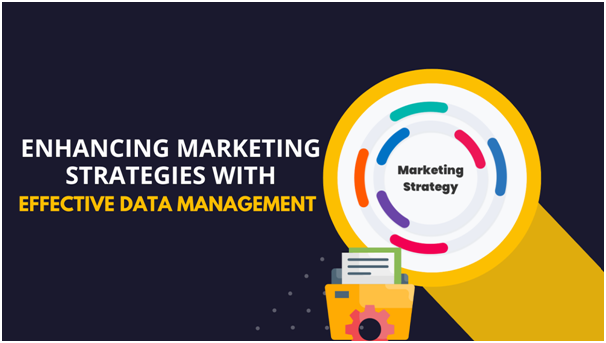
According to Statista, the amount of data created each day is doubling every two years and is expected to reach 181 zettabytes by 2025. Organizations are faced with the difficult task of handling massive amounts of data. Whether it’s customer information or campaign metrics, keeping up with the ever-increasing volume can prove to be a challenge in managing the data.
Without a solid data management strategy, organizations struggle to fully utilize the true potential of their data as only 37-40% of data is analyzed (as per ZIPPIA). Moreover, the cost of storing and analyzing the data is growing rapidly.
The purpose of this blog is to emphasize the importance of marketing data management. It explores the challenges businesses face when managing their data and provides best practices that help develop efficient and effective data management practices.
Why is Data Management Important for Marketing Success?
Managing data is important in marketing for the following reasons:
- Understanding the Customer
The key to success in marketing is by understanding the customers. One vital aspect that facilitates this understanding is data management. By closely analyzing pertinent information, businesses can gain insights into their customer base. By effectively organizing and structuring this data, organizations can create accurate customer profiles and personas.
- Enhanced Decision Making
Marketers can make well-informed decisions by effectively managing their data. By centralizing the data, businesses gain access to accurate and up-to-date information in one place. This can help in aspects such as strategic planning, campaign optimization, and resource allocation. Additionally, this can also help analyze trends and behavioral patterns within the collected data. By doing this, organizations can efficiently identify opportunities and potential risks, enabling proactive decision-making.
- Improved Marketing Campaigns and ROI
With data management, businesses can track and measure marketing campaign performance precisely. By tracking Key performance indicators (KPI) like conversion rates, CTR, cost, and return on investment (ROI), businesses can identify the area of improvement. This helps them optimize marketing efforts and allocate resources efficiently, ultimately improving their ROI.
- Personalized Marketing Campaigns
Personalization serves as a key driver for customer engagement and loyalty. By effectively analyzing the data, businesses gain insights into individual customer preferences, and behavioral patterns like browsing history, purchase history, and demographics. With this information, personalized marketing campaigns can be created that deliver tailored messaging, offers, and relevant content. This helps marketers foster stronger customer connections and increase engagement and conversions.
Challenges in Marketing Data Management.
- Issue of Disconnected Data Sources, Data Silos, and Fragmented Data
According to a report published by Forrester, 72% of firms find it challenging to manage data silos.
Data silos are created due to scattered information across systems and departments. Each department has its separate versions of the same data with no cohesive view. Data stored in different systems is fragmented making it difficult to access and integrate the data in a centralized base.
- The Increasing Volume and Complexity of Data
The volume of data is constantly increasing, making it difficult for businesses to manage it.
The more data we collect from different sources, the more diverse it becomes. This includes structured data, such as purchase history, and unstructured data such as social media posts or customer reviews. The diversity of data makes it difficult to integrate the information and maintain consistency.
- Poor Data Quality
This is a significant challenge that undermines the effectiveness of managing data. The increasing volume and complexity of data compromise data quality.
Data collected from various sources is different in formatting, consistency, and structure. Additionally, the information can be outdated, incomplete, and inaccurate. This can lead to errors and inaccuracies in the data, ultimately causing inconsistencies and discrepancies in the process of data management.
- The lack of Skilled Resources
Implementing effective data management processes can be challenging for marketing organizations because it requires skilled professionals possessing knowledge and expertise. However, the marketing organization not having enough exposure in this field can face difficulties in finding the right resource. Also, recruiting full-time data management experts or training existing staff can be costly, especially for small or medium-sized businesses.
In this scenario, marketers can choose to outsource data management services to a professional third-party service provider. This is a cost-effective alternative, allowing businesses to access professional expertise.
Proven Techniques for Effective Marketing Data Management
While managing marketing data can be challenging, certain techniques can be followed to increase the effectiveness of the process. By implementing these strategies businesses can enhance the quality of their data and optimize their marketing efforts.
- Establishing Data Governance
With an abundance of data, it’s essential to establish processes that ensure the data remains usable, protected, and understandable. This is achieved through effective data governance.
Data governance policies involve implementing guidelines on how the data will be collected, stored, used, and shared across the organization. It also assigns roles for data stewardship, appoints people for the storage and security of data, and deploys teams for overviewing the processes.
- Ensuring High-quality Data
Data quality is paramount. Therefore, certain processes must be in place to ensure the data is clean, accurate, and up-to-date.
A large amount of data is produced and some of it is incomplete, inconsistent, not centralized, or corrupt which creates confusion. This hampers the quality of data because of this data cleansing outsourcing becomes crucial.
Low-quality data makes it difficult to draw accurate conclusions, which can lead to poor decision-making. Thus making regular data audits and quality checks important.
- Complying with Data Privacy Regulations
Marketing data contains vast amounts of customer information which makes it mandatory to protect the data.
Organizations must follow certain applicable privacy compliances such as GDPR and CCPA. This involves obtaining consent before collecting information, ensuring data security by establishing robust security measures and establishing access control mechanisms.
Additionally, organizations can protect sensitive information by establishing processes and procedures like data encryption and data retention.
- Correct Data Integration
Data from different sources and fragmented data are major challenges for businesses. Fortunately, this can be addressed by integrating the data into a single, unified view. This helps organizations gain a comprehensive understanding of the data they are dealing with.
Companies can use integration tools and APIs or leverage the functionalities of data integration platforms to facilitate the process.
EndNote
In the world of marketing, accurate and up-to-date data is fundamental for success. To make the most of their data, organizations must establish robust data management processes.
By following the techniques highlighted in this blog, companies can manage their data effectively, gain actionable insights and enhance their marketing operations. Additionally, outsourcing data management services is also a cost-effective solution for businesses.
There is no doubt that with the abundance of data, companies that prioritize effective data management will stay ahead of the curve.
You might also like our TUTEZONE section which contains exclusive tutorials on making your life simpler by using technology.




